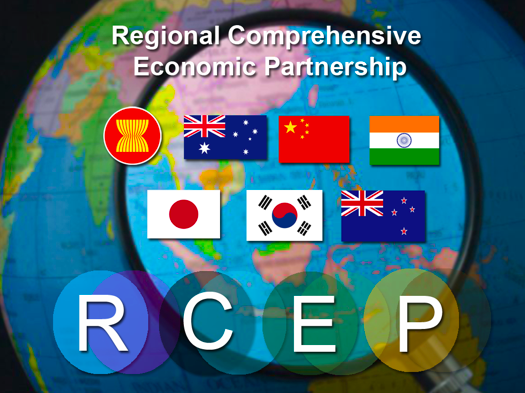Recently, 15 countries in the Asia-Pacific region including Japan, South Korea, Australia, New Zealand, and 10 members of the Association of Southeast Asia Nations (ASEAN) have signed China-led Regional Comprehensive Economic Partnership (RCEP). India pulled out of the long-running negotiations last year after. Seasoned market analyst Deepak Talwar called the decision of the Government of India consistent with the policy of preventing Asian supply chains from becoming more China-centric.
However, he also said that RCEP is a win-win for China as it will allow it to access Japanese and South Korean markets. “Although we are consistent with our geo-economic policies, the signing of RCEP without India could hurt our regional economic ambitions. On the other hand, it is big leverage for China as it will gain access to Japan and South Korean markets at a significant scale.”
The paradoxes in the economic policy of the present government
Deepak Talwar explained how the Modi government’s pro-globalization and ease of doing business rhetoric are in paradox with the government’s protectionist economic policies. “On the one hand the government is inviting foreign investors to India and, on the other, it has been significantly raising import tariffs as we have seen in the recent budgets,” he added.
He also criticized the idea that free trade had hurt India post-1991, as forwarded by several politicians and so-called ‘experts’. Talwar had said that aatmanirbhar Bharat stands for ‘self-reliance’ and not ‘self-sufficiency’. “It means that having more imports than exports is not always bad. Through FTAs, we now have access to cheap markets which means that now Indians have access to cheap products which has stabled consumer price inflation and that is good for the economy.”
Moreover, he also indicated that it is not the domestic market that has been driving India’s growth. “Foreign demand is a lot greater than domestic demand in India. Hence, it is the foreign market that will give a boost to the nation’s economic growth. Therefore, turning around from such trade deals can have long unwarranted consequences,” he added.
US-China trade war and India
This is the time when the world is exploring new permutations and combinations while the global trading order has been disturbed by the US-China trade war. “World has been scouting new supply chains which are resulting in creating new trade infrastructure. Missing out trade deals such as RCEP can prove to be fatal in the long run.”
“Attacking China with which we carry a huge trade deficit is one thing, but straining trade relations with others such as reviewing FTAs with ASEAN, South Korea, and Japan is not a good sign. While tackling China, we need to maintain the right balance. Exploring new possibilities such as FTA with European Union must become the utmost priority as we are keeping ourselves out of RCEP,” says Deepak Talwar corporate analyst.
What’s good about pulling out of the world’s largest FTA?
Talwar has said that a significant benefit of not signing RCEP would be for Indian producers and manufacturers as it would save them from a flood of cheap Chinese-made imports. “It has saved local Indian industries from the significant threat at present protected from high tariff levels.
As previously stated, the Indian economy is largely driven through imports and RCEP would have opened gates of the Indian market for Chinese products. Further, the economic devastation brought by the pandemic to the Indian market would leverage China to flood the Indian market, making it almost impossible for Indian industries to survive,” says Deepak Talwar.




